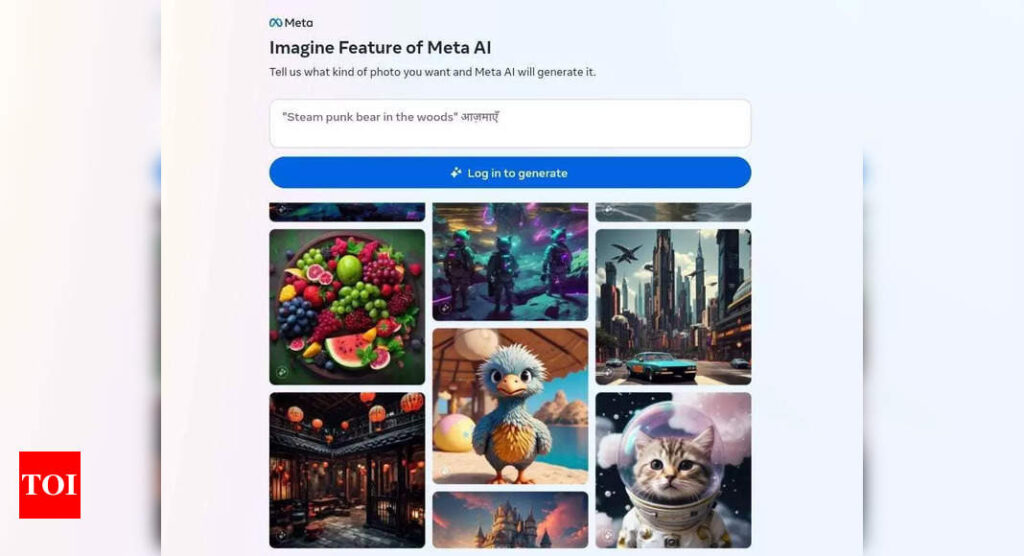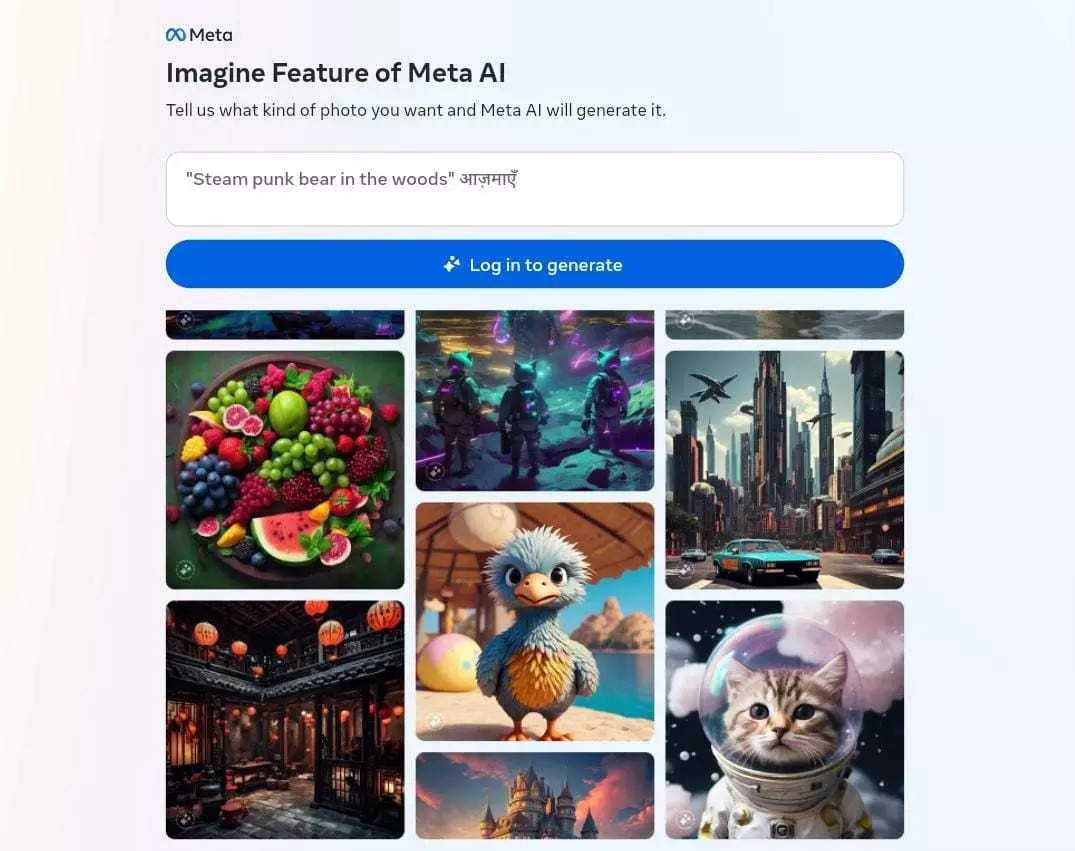[ad_1]
To create a result based on a text input, an AI chatbot needs to be trained on data. The ones that return output in text are trained on written material and the ones that create images are trained on a large cache of photos. Meta recently launched its new-gen AI-powered image generator, and a report has suggested the number of images used to train the underlying model.
Meta’s “Imagine with Meta AI” free standalone AI image-generator website is based on its Emu image-synthesis model. As per a report by arstechnica, the company used 1.1 billion publicly visible Facebook and Instagram images to train the AI model.
A user privacy scare?
This means that if you don’t have your Facebook and/or Instagram account locked, there are chances that your pictures may have been used to train Emu. As of 2016, Instagram users uploaded over 95 million photos a day, suggesting that the dataset used by the company to train its AI model is much smaller that the anticipated photo library.
Imagine with Meta’s AI model
Meta’s image creator is based on Emu, the AI model behind Meta’s new AI image-generation features. The company published a research paper in September in which it detailed that Emu gets its ability to generate high-quality images through a process called “quality-tuning.”
“Training text-to-image models with web scale image-text pairs enables the generation of a wide range of visual concepts from text. However, these pre-trained models often face challenges when it comes to generating highly aesthetic images. This creates the need for aesthetic alignment post pre-training,” the company said in the paper.
The “quality-tuning” guides a pre-trained model to generate images, while maintaining generality across visual concepts.
“We pre-train a latent diffusion model on 1.1 billion image-text pairs and fine-tune it with only a few thousand carefully selected high-quality images. The resulting model, Emu, achieves a win rate of 82.9% compared with its pre-trained only counterpart,” the company said.
Meta did not specify where the training data came from but reports suggest that Meta president of Global Affairs Nick Clegg said the company used social media posts as training data for AI models, including images fed into Emu.
Meta’s “Imagine with Meta AI” free standalone AI image-generator website is based on its Emu image-synthesis model. As per a report by arstechnica, the company used 1.1 billion publicly visible Facebook and Instagram images to train the AI model.
A user privacy scare?
This means that if you don’t have your Facebook and/or Instagram account locked, there are chances that your pictures may have been used to train Emu. As of 2016, Instagram users uploaded over 95 million photos a day, suggesting that the dataset used by the company to train its AI model is much smaller that the anticipated photo library.
Imagine with Meta’s AI model
Meta’s image creator is based on Emu, the AI model behind Meta’s new AI image-generation features. The company published a research paper in September in which it detailed that Emu gets its ability to generate high-quality images through a process called “quality-tuning.”
“Training text-to-image models with web scale image-text pairs enables the generation of a wide range of visual concepts from text. However, these pre-trained models often face challenges when it comes to generating highly aesthetic images. This creates the need for aesthetic alignment post pre-training,” the company said in the paper.
The “quality-tuning” guides a pre-trained model to generate images, while maintaining generality across visual concepts.
“We pre-train a latent diffusion model on 1.1 billion image-text pairs and fine-tune it with only a few thousand carefully selected high-quality images. The resulting model, Emu, achieves a win rate of 82.9% compared with its pre-trained only counterpart,” the company said.
Meta did not specify where the training data came from but reports suggest that Meta president of Global Affairs Nick Clegg said the company used social media posts as training data for AI models, including images fed into Emu.
[ad_2]
Source link











More Stories
Google Maps: Three privacy features coming to Google Maps on Android, iPhones
Most-Downloaded IPhone App: This Chinese app was the most-downloaded iPhone app in the US in 2023
Ukraine’s largest mobile operator goes offline for millions of users after cyber attack